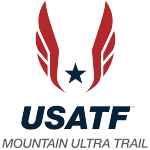
Written by Andrew Simmons for the Spring 2019 edition of our Trail Times newsletter. Andrew is the Head Coach for Lifelong Endurance. Photo above by Steve Blair.
Coaching youth athletes as the head coach of Peak Performance Running has taught me a lot about how young minds and young athletes are shaped. In many ways, the sports in which athletes participate help prepare them for a much larger playing field once they leave our programs and move on to college or enter the real world as young adults. To anyone supporting a young runner from the sidelines or coaching them through competition, I’d like to share lessons I’ve learned over the past five years of coaching.
Parents
Whether you’re grooming a team for a national championship or preparing them to finish their first individual race, parents can help or hinder an athlete’s progress. Parents, above all, fear failure of their child and can often invoke instability and fear into an athlete that was confident and capable. The best thing parents can do for their athlete is to support them and teach them ownership. If you’re always picking up their bag or shoes on the way out the door, they will never learn to not forget the essentials. I believe that the best parents are the ones who let their kids fail, and fail often. This allows them to celebrate the success on a personal level and ultimately be personally motivated when the result isn’t what they wanted.
Nature
Get kids outside as often as possible, and…the tougher the conditions, the better. If athletes only practice in ideal conditions, they will falter in anything but a perfect environment. This will make them a better student, athlete, and person because tough conditions bring out their character, and require toughness in adversity. It also gives athletes a point of reference, so they can say, “This isn’t as hot as the practice we did this summer,” or the confidence to say, “I’ve run in colder, I can do this.” Athletes also need to experience the real world around them, to stand in silence at sunset, let a group of deer pass on the trail, or just enjoy time in nature. Teach a younger generation to revel in nature’s glory.

Team USA under 18 athletes at the 2018 International U18 Mountain Running Cup. (Photo: Steve Blair).
Social
The real world exists outside of a video game or a cell phone. The real world is the time you spend face-to-face with the people around you. If this team has taught me anything, it’s that you can be your most real self when you are with your team. You can show up in the worst mood and have had an awful day completely turned around in 45 minutes with your teammates. The friends made in practice can be older, younger, or from the school across town. The experiences and nuances this diverse group brings together is what makes it so special. Club or not – the social skills gained in a team sport dynamic ripple on as major life lessons.
Leadership and Confidence
If given the opportunity, leaders will naturally come forward. Instead of choosing the clear leader for our teams and assigning leaders or captains, we give everyone a chance to lead. Some athletes aren’t natural born leaders and aren’t the loudest or first to speak up. However, when given the chance they can flourish and have major breakthroughs in personality. When athletes are given a chance to lead, the confidence instilled in them is magnified ten fold. They begin to feel loved and respected by their peers, taking this feeling into every aspect of their world. Give every athlete a chance or opportunity to lead, fail, and learn.

Coach Mark Weeks with youth mountain runner Jaden Evans. (Photo: Nancy Hobbs)
Respect
If athletes learn anything in a youth running program as diverse as our 8-18 group, it is that just because you are older does not always make you faster. Athletes learn early on that the respect you receive is not always based on how fast you are – every person matters on a team. That seventh athlete in cross country still takes points from other teams and can be the difference between a podium and going home empty handed. Respect is always earned and when athletes can grow, learn, and fail in front of others they lose a sense of entitlement and gain a view of the world where they understand that you earn every second of a PR and accomplishment. This understanding will take them far. Respect is earned, never given.
There are few things more enjoyable than coaching a group of kids for a summer, a season, or for all four years they are in high school. It has taught me as much about myself as I could ever hope. The biggest lesson I learned was just how much I have relearned from all of them. Understanding something as basic as pacing and controlling yourself and your emotions early in a race, to being a set of ears for the entirety of a long run. Being a youth coach gives me hope for the next generation of runners not just as it relates to performance, but where they will take our world. If you do one thing for a young runner, share your experience, share your story – I promise they are listening.

Coach Andrew Simmons.
Andrew Simmons is the Head Coach of Peak Performance Running, a youth running program in Denver, Colorado. He has coached youth runners for more than five years and has produced athletes representing Team USA for International U18 Mountain Running Cup, as well as nationally competitive runners in Track and Cross Country. When not running, Andrew can be found casting to unsuspecting trout all over the state of Colorado.
[Editors Note: For young athletes interested in off-road racing opportunities at international competitions, here are selection criteria for the 2019 Youth Skyrunning World Championships, 2019 International U18 Mountain Running Cup and 2019 World (Junior) Mountain Running Championships.]










